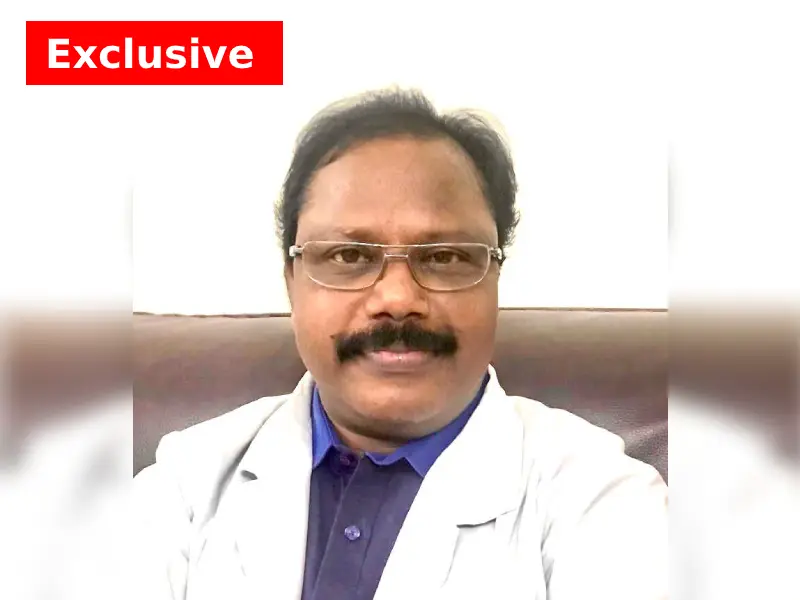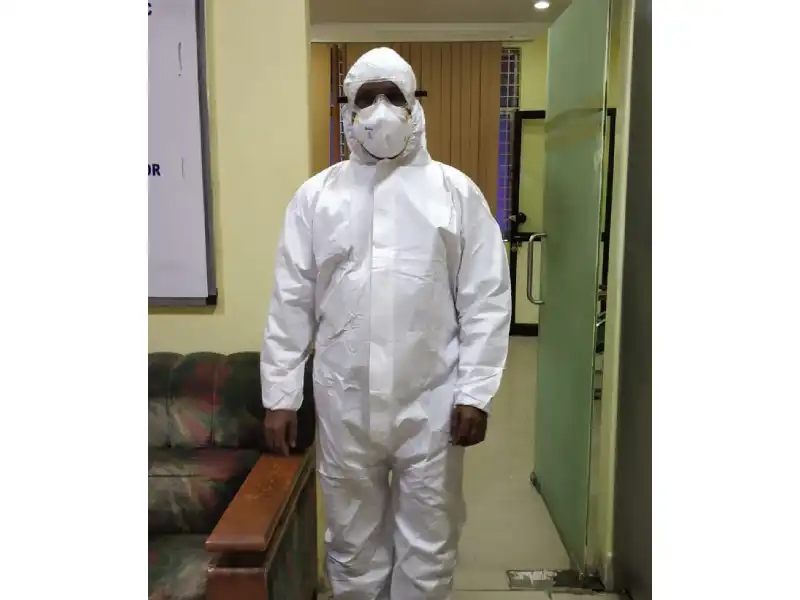COVID-19 not as virulent as H1N1 swine flu: Dr Raja Rao
By Amritha Mohan
Hyderabad : Dr. Raja Rao, professor of General medicine at Gandhi Hospital has become a household name for his services during the pandemic. COVID-19 patients, who were discharged after recovery, remember Dr. Rao with fondness. In a candid chat with NewsMeter, Dr. Rao poured his heart out about the challenges to tackle the COVID-19 pandemic in Telangana.
Many patients were seen thanking you after they were discharged from the hospital. How did you manage to build the bond?
Dr. Raja Rao: It’s just their affection. First and foremost, we must look after the patients with utmost care. We try to understand their problems and treat them . COVID-19 infection and isolation is a new experience for everyone. Some may face depression due to the disease. I always make it a point to talk to the patients and recharge them whenever I visit them. I tell them that life has allowed them to take rest and rejuvenate themselves. Talking about little things always helps.
How often do you visit patients? How do you bond with them?
Doctor: At least 3-4 times daily, while being accompanied by other junior doctors. Usually, I go when they call me. For instance, if someone is not feeling mentally well, I would go and say hello. I spend around 3-4 hours just talking to different patients.
None of the patients will be able to recognize me by my face, but after 3-4 visits, they are accustomed to my voice. They can recognize me by my voice. Sometimes, I might be late or not able to visit, but then I am told that so-and-so person enquired about you. It is a good feeling to know that. Even while they are getting discharged, I don’t think they get to see my face. But with every visit, an emotional bond is being created. If you help anyone when he is suffering, you will always be remembered. So that bond is there.

As a doctor, you have been at the forefront of the 2009 swine-flu crisis. Is there any comparison with the ongoing pandemic?
Doctor: I do believe the H1N1 swine flu in 2009 was a more dangerous epidemic. The severity of the disease is more in the case of H1N1, but the infectivity rate is less. However, when you compare this with COVID-19, the infection rate is more, while the virulence/ severity is less, as compared to other countries. Virulence usually refers to a micro-organism's ability to infect or damage the host.
Do you think COVID-19 becomes fatal only when patients are co-morbid?
Doctor: Yes, when a person already suffers from hypertension, cardiac diseases, or even kidney failure, their co-morbidity rate is high. Add COVID-19 into this equation, it gets complicated. I do believe some of the deaths may not have happened due to COVID-19 alone. It was due to a build-up of several other diseases, accelerated by the novel coronavirus.
Does medication used to treat COVID-19 have an effect on their existing ailments?
Doctor: In my opinion, any medication will have some effects and side-effects. For instance, Hydroxychloroquine, which has been suggested as a treatment, can cause cardiac problems in some people as a side effect. However, this does not apply to all people. I think the side-effects differ from person-to-person and largely dependent on how a body reacts to the medication.
A lot of people are asymptomatic but still have an infection. How does this work?
Doctor: There are two important periods you need to consider. One is the incubation period and the infectivity period. The incubation period refers to the time between the entry of the virus into the body and showing of symptoms, which is normally two weeks.
The infectivity period refers to the period after this. The person may have recovered, but still, the chances of infection cannot be ruled out. This is why another 14 days of quarantine is suggested for patients who have been discharged from the hospital.
When will the lockdown end? What is your advice to people out there who are stuck in the lockdown?
Doctor: We can’t say for sure when the lockdown will end. The least we can do is not to go out, maintain social distance, personal hygiene, wash hands frequently, use masks, and monitor yourself if you find a mild cough or cold.